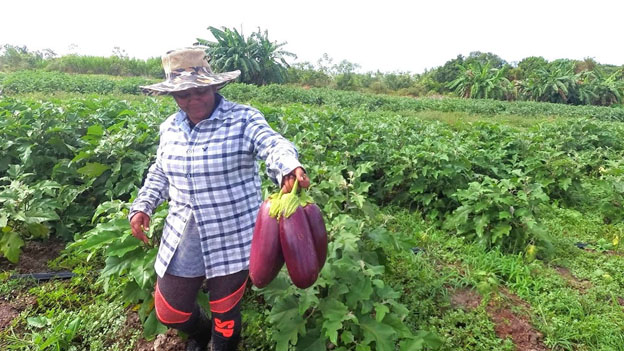In circumstances where the agricultural sector in Latin America and the Caribbean plays a vital role in producing food and ecosystem services not only for the region but for the entire planet, the World Bank wants policy-makers to take action to unleash what it says is the sector’s vast potential to drive sustainable and inclusive growth in the decades ahead.
The exhortation contained in a report from the Bank released last week comes against the backdrop of what is felt to be the considerable underperformance of the agriculture sector in the Caribbean where Caribbean Community (CARICOM) member countries, particularly, have not only failed to optimize their individual and collective agricultural potential but have placed a heavy burden on their vital foreign exchange earnings by running up an annual extra regional food import bill currently believed to be in excess of US$5 billion dollars.
The Bank is calling for an end to what in effect is a mismanagement of the economic resources of countries in the region and for a much closer focus on the gains to be secured from the sector as agriculture and food systems across Latin America and the Caribbean (LAC) try to recover from the impacts of the COVID-19 pandemic.
What the World Bank wants, the Report says, is for policy makers to use the sector to drive sustainable and inclusive growth for decades to come.
It is doubtless a timely challenge for a region in which heavy dependence on the tourism sector has played a huge role in a proliferation of imported foods, in every CARICOM country save and except Guyana, where an agricultural sector continues to thrive despite serious challenges, ensuring not just adequate quantities of food for local consumption but also an export capability that serves the rest of the region and further afield.
The recent World Bank Report titled “Future Foodscapes: Re-imagining Agriculture in Latin America and the Caribbean,” is calling for reforms in the sector if it is to play an even more important role in supporting the region’s recovery from the COVID-19 crisis, the elimination of extreme poverty and the promotion of shared prosperity.
“We need an agriculture sector that can satisfy the growing food needs of the region and the world at large while avoiding further damage to our environment. With better policies and new technologies, the region’s agri-food systems can contribute more to growth, reducing poverty and food and nutrition security,” a Bank official is quoted as saying in the wake of the release of the Report.
The Report notes too that while agriculture accounts for between 5 and 18 percent of gross domestic product in twenty countries in Latin America and the Caribbean and its record of success notwithstanding, the sector is underperforming, with impressive achievements reflected in rising production and increasing net exports coming at the expense of significant environmental and health costs. Accordingly, Report is calling for a balance between maximization of the region’s agricultural potential and the protection of its environmental wealth and paying attention to food quality, safety and nutrition security.
In a release issued to draw attention to the circulation of the Report World Bank Lead Agriculture Economist and leader of the team that authored the Report, Michael Morris described Latin America and the Caribbean as the world’s breadbasket and lungs,” though he added that “the challenge is to ensure it continues to play those roles. Policy makers will need to focus on reducing market inefficiencies, building human and institutional capacity, readying for catastrophic risks and seizing emerging opportunities, while at the same time considering game-changing reforms such as making agri-food systems carbon neutral,” Morris added.








